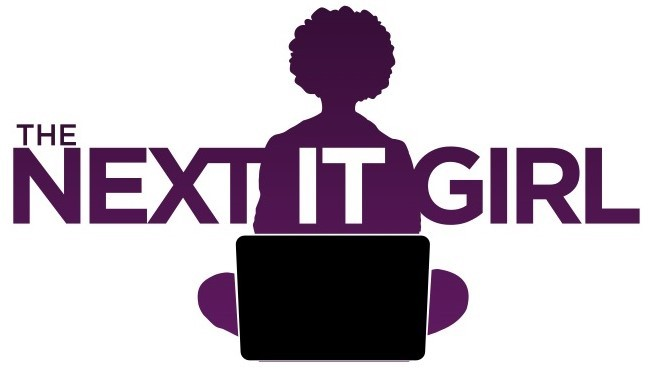105: Local IT Girl, Global Impact

Kim Milfort is a digital marketing expert based in the Midwest. She loves plants, books, and seeing others succeed. She’s also a proud Haitian American who is working on perfecting her plantain game. She once held a chicken.
I’m an Indianapolis IT Girl, but my work is global. I am global, and that is only possible because a long time ago, someone gave me something priceless: the gift of permission.
She did it by giving herself permission, playing entirely by her own rules and having the audacity to simply pursue their own passions and encourage me by proximity to do the same, regardless of perceived qualifications or expectations. Learning along the way, resourcefulness, navigating uncertainty, boldly seizing opportunities, and trying difficult things while learning from obstacles are skills we continuously develop throughout life. But this post isn’t about those skills – it’s actually about my current “thing,” which is bringing solar power to in Haiti.
When you think of the word Haiti, what comes to mind? Is it art, revolution, and innovation? Along with my family and heritage, that’s exactly what comes up for me. Although it hasn’t always been so, my experience of the country of my father’s birth is an extremely multi-faceted one, from our food to our language and economics. It’s an experience that is constantly growing, too, since I was born in the United States. The first thing to learn about Haiti applies to many other countries in the developing world and in general: things just work differently.
I’ve known this for awhile, but haven’t experienced it so personally as when I started working this year with the Selke-Dimanche Project, a global network founded by Haitian American artist and advocate Jean-Paul Weaver. The current initiative of the project is supporting efforts to bring solar power and fund education in Haiti with $10,000 in microinvestments. The Selke-Dimanche Project prioritizes the needs of Haitian-led organizations at the ground level, supporting a school called Kingdom Kids International and an arts center called Dance to Save Lives with advocacy, promotion, and some funding when possible. Another one of our partners at the ground level in Haiti, Jakmel Ekspresyon, procured 1500 panels that needed to be shipped in a very specific, very expensive way (shipping works differently in Haiti). We are also working to fund transportation and purchase of batteries and inverters for Kingdom Kids to support use of the panels.
Electricity is a perfect example of one of those many things that just works differently. About 25% of Haitians have access to electricity currently, and even those who do have it extremely inconsistently. Your lights, radio, device chargers, and electric appliances may not come on until the late afternoon, sometimes as late as 10 pm at night for a just couple of hours. They may snap back off pretty early, or there are often days where the electricity doesn’t come on at all. This means that doing business and studying, or having access to Wifi is not a 24/7/365 operation.
By supporting solar power in Haiti, we aren’t just powering devices – we are helping to power the future of technology. Jakmel Ekspresyon’s Robo Klub allows kids to not just learn robotics, but experiment and play. They have classes where they try new things, like using quantum computing and super data to make music from their laptops. Innovation is second nature to Haitians, because of the necessity for it and because of our legacy as the only successful slave rebellion and the first free Black Republic.
 Jakmel Ekspresyon Robo Klub students turning a light bulb on and off with code.
Jakmel Ekspresyon Robo Klub students turning a light bulb on and off with code.
Just like the hidden innovation that exists in Haiti, many of us have untapped or unrecognized abilities that we will only fully express if we give ourselves permission to do so. We must see ourselves as capable of doing the thing that no one has told us to do, or how to do.
Working as a consultant for a global tech company and growing up in the United States both come with enormous privilege and access to resources. American privilege often comes as a result of economic exploitation, the likes of which impacts Haiti. I am in a unique position because this privilege allows me to help in some small way to help empower and uncover the enormous cultural and intellectual wealth that lies within Haiti, while also realizing a fuller expression of myself. I hope in your path you choose to give yourself permission to do the same.
Education is a basic human right, and it’s another one of those things that just works differently in Haiti. School fees, transportation, and the need to make a wage often prevent children from attending school. Kingdom Kids International, Dance to Save Lives, and Jakmel Ekspresyon align with the values of the Selke-Dimanche Project because they truly prioritize the needs of their students, offering free services, enriching activities like sports, art, debate, Robotics, philosophy, and more. They also do the work of decolonization, in their empowerment of Haitians helping Haitians with curriculums, values, and activities that are a result of Haitian society expressing intrinsic value, authentically.
I’d like to thank the Indianapolis chapter president of The Next IT Girl, Kendrea Williams for supporting this project through a sponsorship with her organization, PitchFeast! If you’d like to join us in bringing solar power to Haiti, text POWER to 59545 and help us make it to the finish line before Summer!
